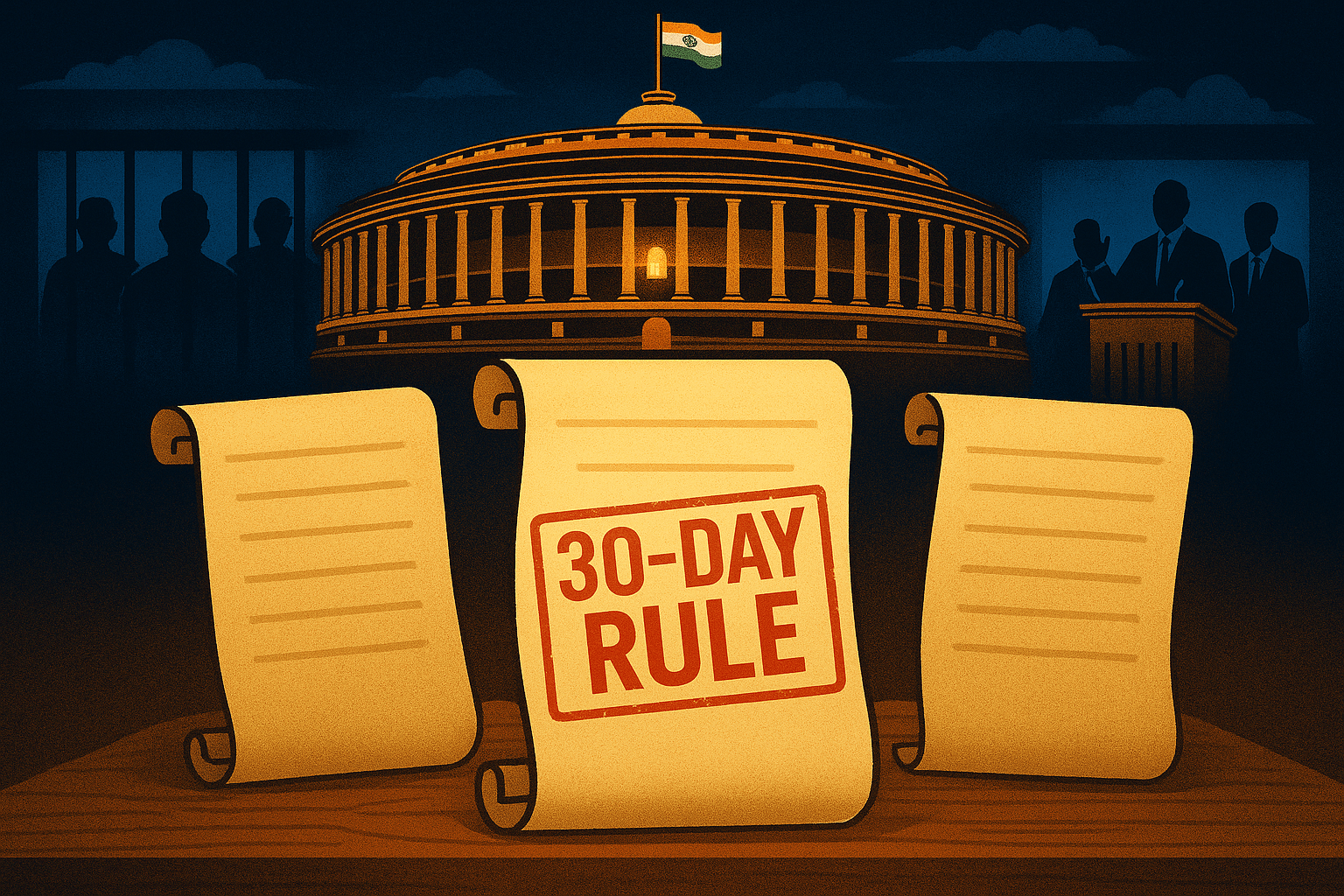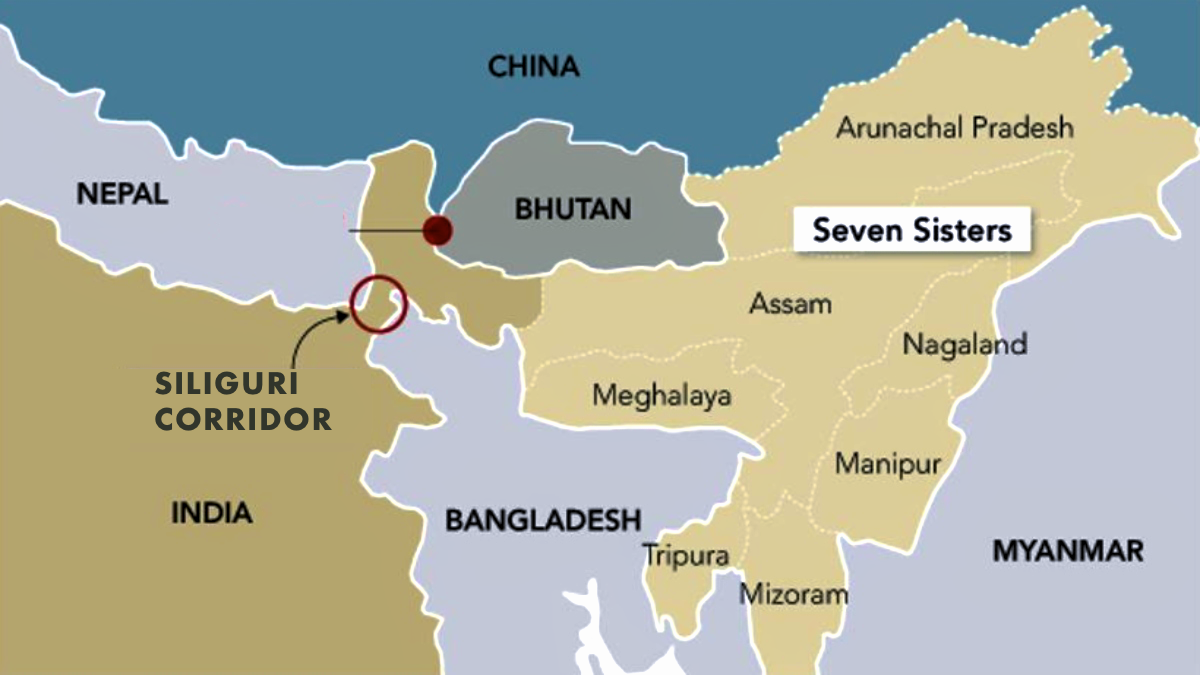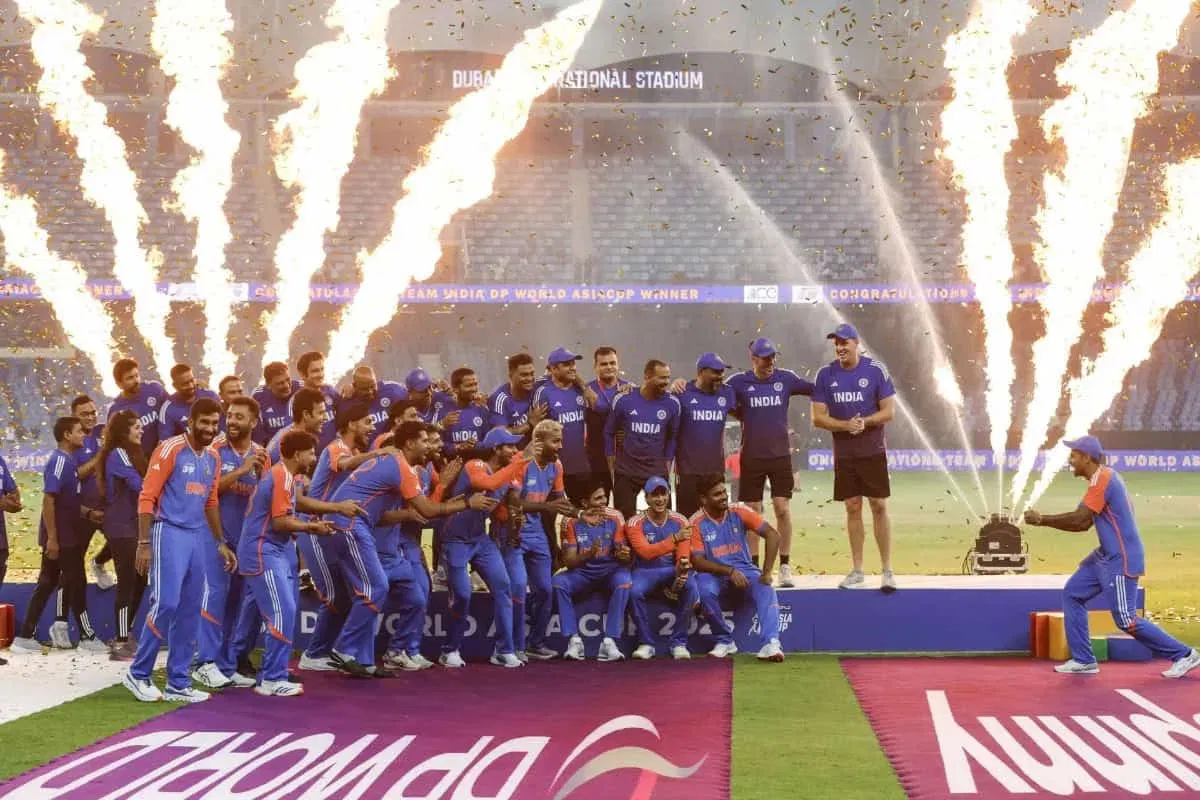New Law: PM and CMs Must Resign if in Jail for 30 Days

Imagine this: the country’s top leader—Prime Minister, Chief Minister, or a Minister—is sitting in jail, but still holding on to the chair of power. The public is left wondering: Who is running the government? This very situation created a storm last year when Delhi CM Arvind Kejriwal was in custody but did not resign. To avoid such confusion in the future, the Central Government is now introducing a new 30-day jail term. If passed, it could alter the way India approaches accountability in politics.
What Exactly is the New Rule?
The Union Government has introduced three new bills, led by Home Minister Amit Shah, to address this issue.
- Constitution (Amendment) Bill, 2025 (133rd Amendment)
- Adds provisions under Article 75 (Union), Article 164 (States), and Article 239AA (Delhi).
- Government of Union Territories (Amendment) Bill, 2025
- Jammu & Kashmir Reorganisation (Amendment) Bill, 2025
Together, these bills introduce the 30-day jail rule:
👉 If a Prime Minister, Chief Minister, or Minister is in custody for 30 consecutive days (in cases with punishment of 5+ years), they automatically lose their post.
How Will It Work?
- Serious Offence Rule – Applies only when the case involves a punishment of 5 years or more.
- Automatic Resignation – On the 31st day, the leader loses office without needing to resign.
- Lighter Offences Exempted – If the case involves less than 5 years of punishment, they can remain in office.
- Reappointment Possible – If released on bail later, the person can be reappointed by their party.
Example:
- Rahul Gandhi (2023) – Lost his MP seat due to conviction (Lily Thomas case rule).
- Arvind Kejriwal (2024) – Was in jail without conviction, did not resign. The new law would have forced him to step down.
Why Is This Important?
Supporters Say:
- Good Governance – The country cannot be led by someone behind bars.
- Moral Responsibility – Leaders must step aside if accused in serious cases.
- No Governance Paralysis – Avoids confusion like in Delhi last year.
Critics Say:
- Risk of Misuse – Opposition leaders could be jailed for 30+ days without conviction, forcing resignation.
- Innocent Until Proven Guilty? – This principle gets weaker if resignation is forced before the trial ends.
- Political Weapon – Ruling parties could misuse agencies to topple state governments.
The Constitutional Angle
The Constitution (Amendment) Bill is the most critical. It requires:
- Special Majority in Parliament (2/3rd of members present + majority of total membership).
- Ratification by Half of the States (because it alters federal structure).
👉 This makes the road tricky for the NDA, as they will need opposition support.
Larger Question: Is This the Right Balance?
This bill sparks a tough debate:
- Should accountability override the resumption of innocence?
- Or will this create a new tool for political vendetta?
What’s clear is that this rule, if passed, could reshape Indian politics. Leaders will have to think twice before holding on to power while in custody.
Conclusion
India stands at a turning point. The 30-day jail rule could make politics cleaner and more accountable—but it could also open the door to misuse. Whether it strengthens democracy or weakens opposition voices will depend not just on the law, but also on how responsibly it is applied.
One thing is certain: the days of leaders running governments from jail may soon be history.









No comments yet. Be the first to comment!